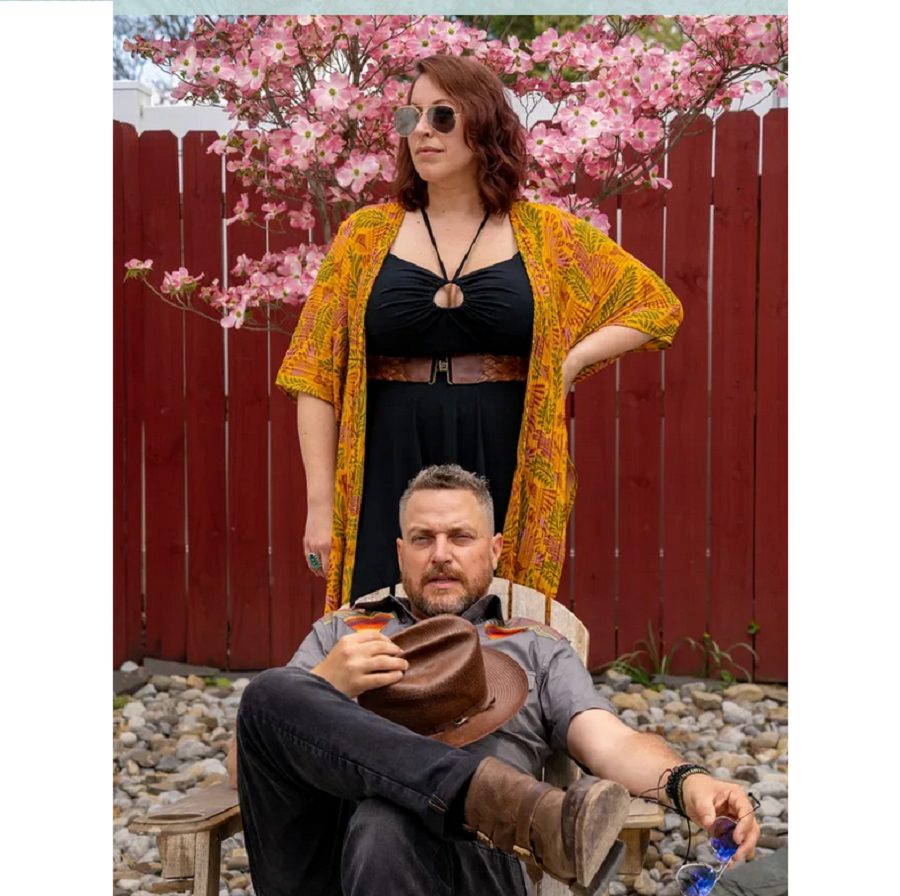Mike Montrey has long been celebrated for his dynamic presence and soulful voice. With Love, Time, Mortality (out August 2nd) the band continues to build on their impressive repertoire, showcasing a rich blend of folk, rock, and Americana influences. Montrey has been a fixture in the music scene long enough to avoid clichés about musical journeys; his work speaks for itself. His previous collaborations with names like Grammy-winning producers Jim Scott and Marc Swersky brought different flavors to his music. However, with Love, Time, Mortality, Montrey brings us into his most personal songwriting yet.
Montrey’s voice was born for punk and is right at home in folk and Americana. Like many before him — Langhorne Slim, Two Cow Garage, John Moreland — there is pleasure in taking things more slowly, and savoring the experience. In our interview, Montrey talks about life on the road and what musicians need to stay there.

Does your album have an overarching theme?
Yes, the title itself, Love, Time & Mortality, represents the three abstractions. These three elements steer our lives, and the songs on this record specifically explore each one through the experiences and observations of our songwriter.
Having just turned 47, the last decade-plus has been a bit crazy, and reflection was necessary for me emotionally and artistically. Time seems to pass quickly and slowly all at once. There has been a great deal of loss and rebirth along the way, and these songs reveal that in a personal and universal way.
Name a perfect song and tell us why you feel that way.
“You Are My Sunshine” is about as close to a perfect song as you can get. For one, it is about as memorable a melody as you’ll find, so much so that kids sing it almost as a nursery rhyme, yet it’s a dark song. The singer is grieving but at the same time still acknowledging that even though they have been left for another, that person is still all that matters; “my only sunshine.” It’s heavy, and we sing it to put kids to bed! That’s a powerful piece of music. Plus, nobody really knows who wrote it, which is mystical and cool.
Do you have any go-to albums to listen to in the van?
While on the road, I have an assortment of mixes and playlists that get spun, and a Dead show also does the trick. However, the one record I tend to always put on for nostalgic reasons is Wilco’s Summerteeth. While I do love that album, the main reason is that back in 2008, I was a touring member of The Samples (look them up if you don’t know them; they’re great), and we traveled on a tour bus to every state that year, playing everywhere from Red Rocks to House of Blues in Dallas, to Bend, Oregon to Ft Myers, Florida and beyond. There was a 10-disc CD changer in the lounge at the back of the bus, and I loaded it up when we first got on. Disc one was Summerteeth, and every time the bus would fire up the power, it would just start playing, so much so that the jarring guitar intro of the first track, “Can’t Stand It,” is imprinted on my brain! So, that record brings me back to being on the road.
What are some of the best venues you’ve played? Why?
Some of the best venues I’ve played are the intimate ones with great sound. People always think it’s the biggest crowds that do it, but that’s not always the case. The largest venue I ever played was Dick’s Sporting Goods Stadium out in Denver, and while it was cool to have such a large audience, you do feel somewhat removed from it. Good examples of some really cool intimate venues are The Saint in Asbury Park, NJ – which is no longer, unfortunately, Rockwood Music Hall NYC – Viper Room L.A. – and Martyr’s Chicago.
What’s the best way a fan can support you?
The best way a fan can support us is to share the music and contribute in a fair and monetary way. Look, I’d love to say that the music happens and goes around, and we spread art and joy, but it takes real money. I recently read a great take on some of it in the wake of some larger venue tours not selling and being canceled. The typical fan response is, “I can’t afford a $300 ticket” – and I get that. However, recorded music is basically free now. You get ALL the music for about $100/year on a streaming service. If you bought 30 albums in one year at $15 per record 25 years ago, that’s $450 without inflation. It’s not sustainable. It’s like the population forgot that they used to have to pay for music to even listen to it at home. So, ultimately, if you can afford it, pay for it, and if you can’t, please share it.
Mike Montrey Band’s album Love, Time, and Mortality will be out on August 2nd
